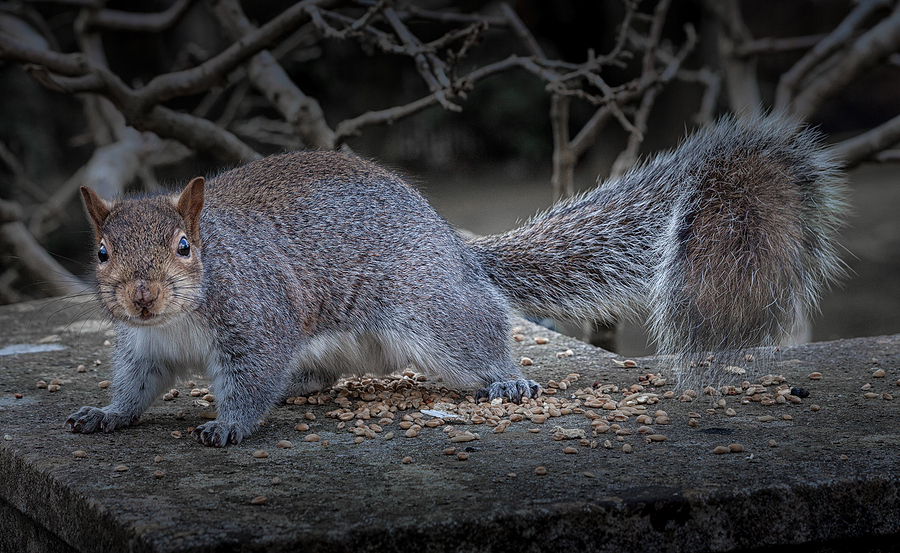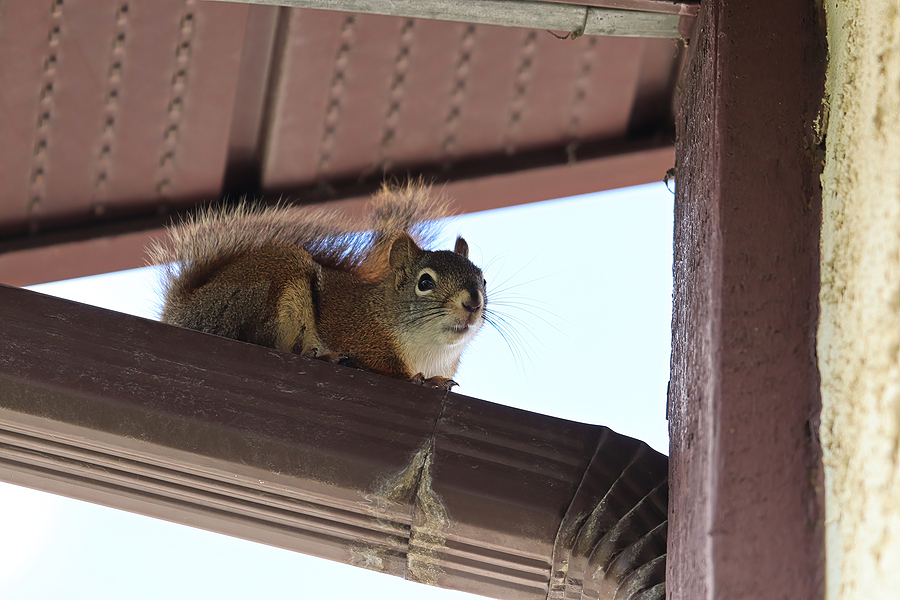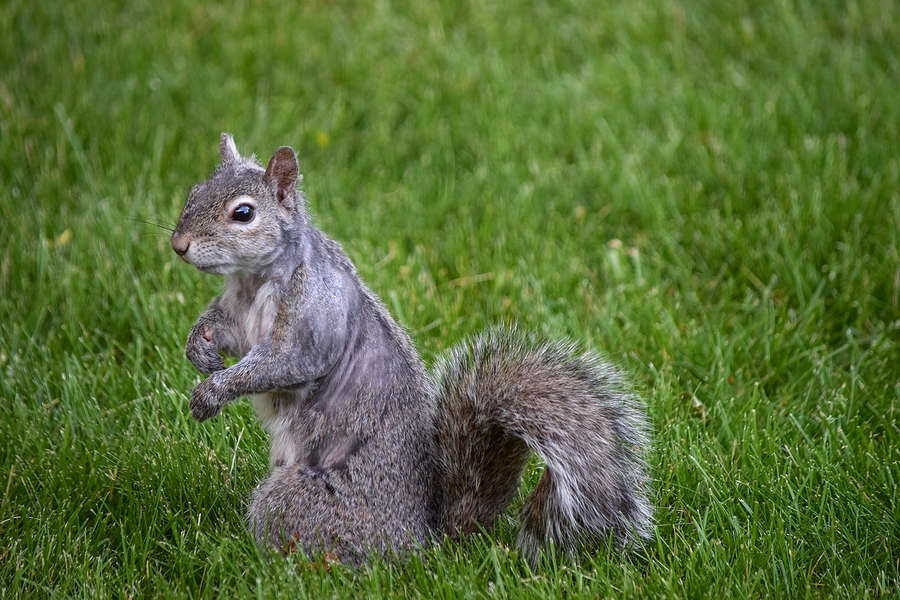Squirrels might be cute when they’re darting around a park, but when they invade your home or garden, they quickly turn from charming critters to unwelcome guests. If you’ve noticed chewed wires, scattered insulation, or furry intruders scurrying through your attic, you’re not alone. Many homeowners and gardeners face the vexing challenge of squirrel invasions. In this blog post, we’ll explore the ins and outs of squirrel removal and control, offering valuable insights and practical tips to help you protect your property.

Understanding Squirrels in Tennessee
Tennessee is home to several squirrel species, but the Eastern Gray Squirrel is the most common troublemaker for homeowners. These agile creatures are known for their adaptability and can thrive in both urban and rural environments. Understanding their behavior and habitats is crucial for effective squirrel control.
Squirrels are highly social animals, often living in large communities. They are active year-round but are most visible during the morning and late afternoon. These critters are resourceful, using their sharp claws and strong teeth to access food and shelter. Their nests, called dreys, are typically built high in trees, but they’re not picky—they’ll move into your attic if it offers warmth and safety.
Squirrels are known for their acrobatic skills, leaping from branch to branch with ease. This agility allows them to access hard-to-reach areas of your home. Their diet consists mainly of nuts, seeds, fruits, and insects, but they’ll chew on just about anything to keep their constantly growing teeth in check.
Signs of Squirrel Infestation
Squirrels often find cozy spots in attics, wall voids, chimneys, and roofs. These areas provide a warm haven, especially during colder months. Identifying the signs of a squirrel infestation can help you address the problem before it becomes severe.
Listen for telltale sounds of squirrels in the attic, such as scratching, scampering, or gnawing. You might also notice droppings or chewed-up insulation materials. Outside, look for damaged eaves or vents—squirrels may chew holes to gain entry.
In the garden, squirrels can wreak havoc by digging holes, gnawing on bark, or stealing birdseed. If you spot half-eaten fruits or vegetables, these furry intruders might be to blame. Keep an eye out for small caches of nuts or seeds, as squirrels are known to stockpile food for winter.
Squirrel Removal Methods
When it comes to squirrel removal, non-lethal methods are often the best approach, as they allow for humane treatment of the animals while effectively addressing the problem. These methods can include using repellents, setting up exclusion barriers, and employing live traps to safely capture and relocate the squirrels. By opting for these techniques, homeowners can resolve their squirrel issues without causing harm to the animals.
Live Trapping
Humane traps can be used to capture and relocate squirrels safely. It’s important to check local wildlife control regulations, especially as a Tennessee residents, because some areas have specific rules regarding wildlife tampering and relocation. It is generally recommended to never touch, trap, harm, or kill woodland wildlife under any circumstances. Always enlist the services of a licensed animal removal company instead.
Animal Repellent
One effective technique is to use squirrel repellents, which come in various forms such as sprays, granules, or powders. These products can be strategically sprayed or sprinkled around entry points like doors, windows, and vents to create a barrier that deters squirrels from entering your home. By disrupting their sense of smell or taste, repellents make the environment less appealing to these furry intruders, helping to protect your space without causing them harm. Regular application and monitoring of these entry points can enhance their effectiveness and ensure peace of mind.
Sealing and Exclusion
Additionally, installing one-way doors can allow squirrels to exit your attic without being able to return. It’s crucial to seal any entry points once the squirrels have been removed. Use sturdy materials like metal flashing or hardware cloth to cover gaps and vents. Remember, squirrels are persistent, so thorough sealing is essential to prevent future invasions.
Preventing Future Infestations
Keeping squirrels away requires a proactive approach. Start by trimming tree branches that hang close to your roof, as these act as highways for squirrels to access your home. Installing chimney caps can also prevent squirrels from nesting in your chimney.
Consider using squirrel-proof bird feeders to keep these critters from raiding your birdseed supply. Baffles, which are cone-shaped devices, can be placed on poles to stop squirrels from climbing up to the feeder.
In the garden, protect your plants by using wire mesh or netting. These barriers can prevent squirrels from digging up bulbs or munching on your prized vegetables. Additionally, consider planting squirrel-resistant plants like daffodils, which are less appealing to these critters.
Hiring a Professional Wildlife Control Service
If you’re dealing with a persistent nuisance squirrel problem, it might be time to call in the experts. Squirrels can cause significant damage to your property by chewing through wires, insulation, and even structural components, leading to costly repairs. A professional Nashville wildlife removal company can assess the situation thoroughly and devise a comprehensive plan to safely remove the squirrels. They use humane methods to capture and relocate the animals, ensuring they are handled with care and respect.
Additionally, these professionals will clean up any mess the squirrels have left behind, such as nests or droppings, which can pose health risks to you and your family. With their specialized tools and knowledge, they can efficiently manage even the most stubborn infestations, ensuring that your home is secure and safe.
Moreover, opting for professional services offers peace of mind, as they ensure that all possible entry points are sealed to prevent future intrusions. This not only guarantees a squirrel-free home but also protects against other potential wildlife invaders. These experts can provide tailored advice on long-term prevention strategies, taking into account the unique characteristics of your property, thereby safeguarding your home for the future.
Conclusion
Squirrel invasions can be a real headache for homeowners and gardeners, but with the right approach, you can regain control. By understanding squirrel behavior, recognizing signs of infestation, and implementing effective removal and prevention strategies, you’ll be well-equipped to protect your property.
Don’t wait for squirrels to make themselves at home—take action today. For expert advice and assistance, consider reaching out to a local wildlife removal company. They can provide personalized solutions to keep nuisance squirrels at bay and restore peace to your household.
We hope this comprehensive guide has provided you with valuable insights and tips for battling these cute but mischievous creatures. Contact Budget Animal Removal at 615-337-9165 for TWRA licensed and insured Nashville, Tennessee animal removal for squirrels, chipmunks, and more. We serve commercial clients too.
Related Posts:
How to Protect Your House From Nuisance Wildlife in Tennessee
Winning the War Against Garden Squirrels: Proven Tactics
Why You Need to Squirrel-Proof Your Home Before Late Summer


